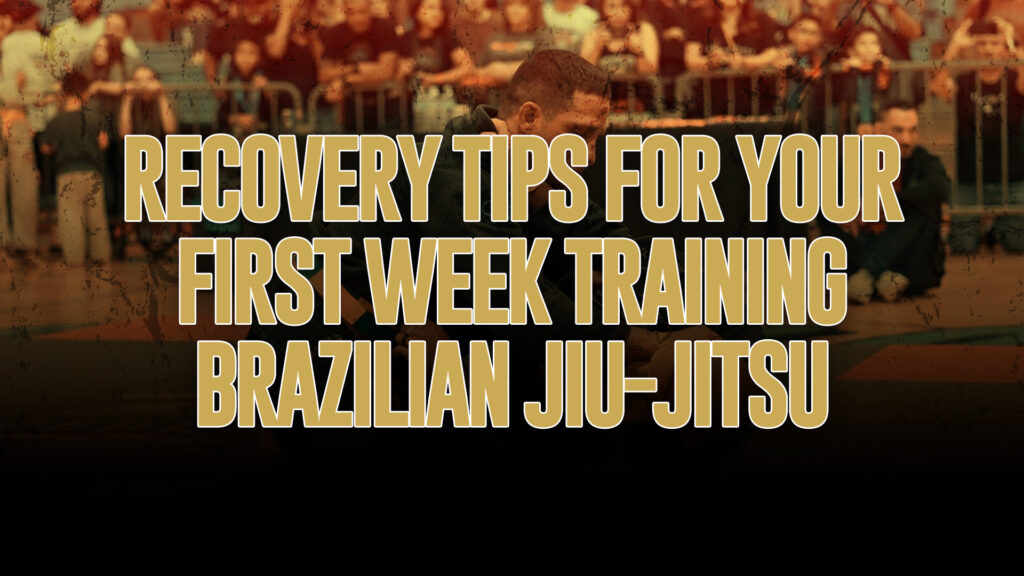
Recovery Tips for Your First Week Training Brazilian Jiu-Jitsu
Your Brazilian Jiu-Jitsu (BJJ) journey is an exciting adventure, but the physical and mental demands of the sport can leave you feeling fatigued, especially during your first week. Proper recovery is essential to ensure you can continue progressing without risking burnout or injury. Here are valuable nutrition, physical, and mental recovery tips to help you recharge after your initial week of intense BJJ training.
1. Optimize Nutrition: Fuel Your Body for Success
Nutrition plays a pivotal role in recovery, especially when engaging in a physically demanding activity like BJJ. Ensure you’re providing your body with the necessary nutrients to repair and replenish. Focus on a balanced diet that includes:
- Protein: Incorporate lean protein sources like chicken, fish, tofu, or beans to aid in muscle repair and recovery.
- Carbohydrates: Replenish glycogen stores with complex carbohydrates such as whole grains, fruits, and vegetables to sustain energy levels.
- Hydration: Drink plenty of water to stay well-hydrated. Proper hydration is crucial for optimal muscle function and recovery.
- Electrolytes: Replenish electrolytes lost through sweating by incorporating electrolyte-rich foods or drinks into your post-training routine.
2. Prioritize Sleep: The Ultimate Recovery Tool
Quality sleep is a non-negotiable component of effective recovery. Aim for 7-9 hours of sleep each night to allow your body to repair and regenerate. BJJ training can be physically and mentally demanding, and sufficient sleep enhances cognitive function, mood, and overall well-being. Establish a consistent sleep routine, create a comfortable sleep environment, and prioritize rest to maximize the benefits of your training.
3. Active Recovery: Keep Your Body Moving
Engage in light, low-impact activities on your rest days to promote blood circulation and alleviate muscle soreness. Activities like swimming, walking, or gentle yoga can enhance flexibility and reduce stiffness. Active recovery helps prevent the buildup of lactic acid, contributing to faster recovery between intense BJJ sessions. Listen to your body and choose activities that support rather than strain your muscles.
4. Implement Stretching and Mobility Exercises: Enhance Flexibility
BJJ places a premium on flexibility and joint mobility. Incorporate stretching and mobility exercises into your routine to improve flexibility and reduce the risk of injuries. Focus on both dynamic stretches before training to warm up muscles and static stretches afterward to cool down and increase flexibility. Consistent stretching contributes to enhanced recovery and improved overall performance on the mat.
5. Mental Recovery: Practice Mindfulness and Relaxation Techniques
The mental aspect of recovery is just as crucial as the physical. BJJ can be mentally taxing, and it’s essential to recharge your mind for optimal performance. Consider integrating mindfulness and relaxation techniques such as meditation or deep breathing exercises into your routine. These practices help reduce stress, improve focus, and enhance mental resilience, ensuring you approach each training session with a clear and positive mindset.
6. Ice Baths and Contrast Therapy: Combat Inflammation
Ice baths and contrast therapy (alternating between hot and cold treatments) are effective methods to combat inflammation and muscle soreness. After an intense BJJ session, consider taking a cold shower or immersing yourself in an ice bath to reduce swelling and enhance recovery. Contrast therapy, alternating between hot and cold treatments, can also improve circulation and accelerate the elimination of metabolic waste products from your muscles.
7. Listen to Your Body: Rest When Necessary
Above all, pay attention to your body’s signals and don’t hesitate to take a day off when needed. Pushing through fatigue or training with minor injuries can exacerbate issues and hinder long-term progress. Rest is a crucial component of recovery, allowing your body to heal and adapt to the physical demands of BJJ. Trust the process and prioritize your well-being to ensure longevity in your martial arts journey.
In conclusion, the first week of Brazilian Jiu-Jitsu training is an exhilarating introduction to a physically and mentally demanding discipline. By implementing these recovery tips—focusing on nutrition, sleep, active recovery, stretching, mental well-being, and targeted therapies—you can optimize your recovery, allowing you to approach each training session with renewed energy and enthusiasm. Remember, recovery is a vital component of progress in BJJ, and taking care of your body and mind is key to a successful and fulfilling martial arts journey.

